
Conference Programme
Many of the presentations from the two days were recorded and are now live on our YouTube channel.
Click on the links in the programme below to view the recordings.
Download the full conference proceedings here (pdf) or view the abstracts in the presentation below.
Day 1: Thursday 3 September .png)
| 08:45 | Registration | |
| 09:00 | Welcome | |
| 09:15 | Keynote conversation 1: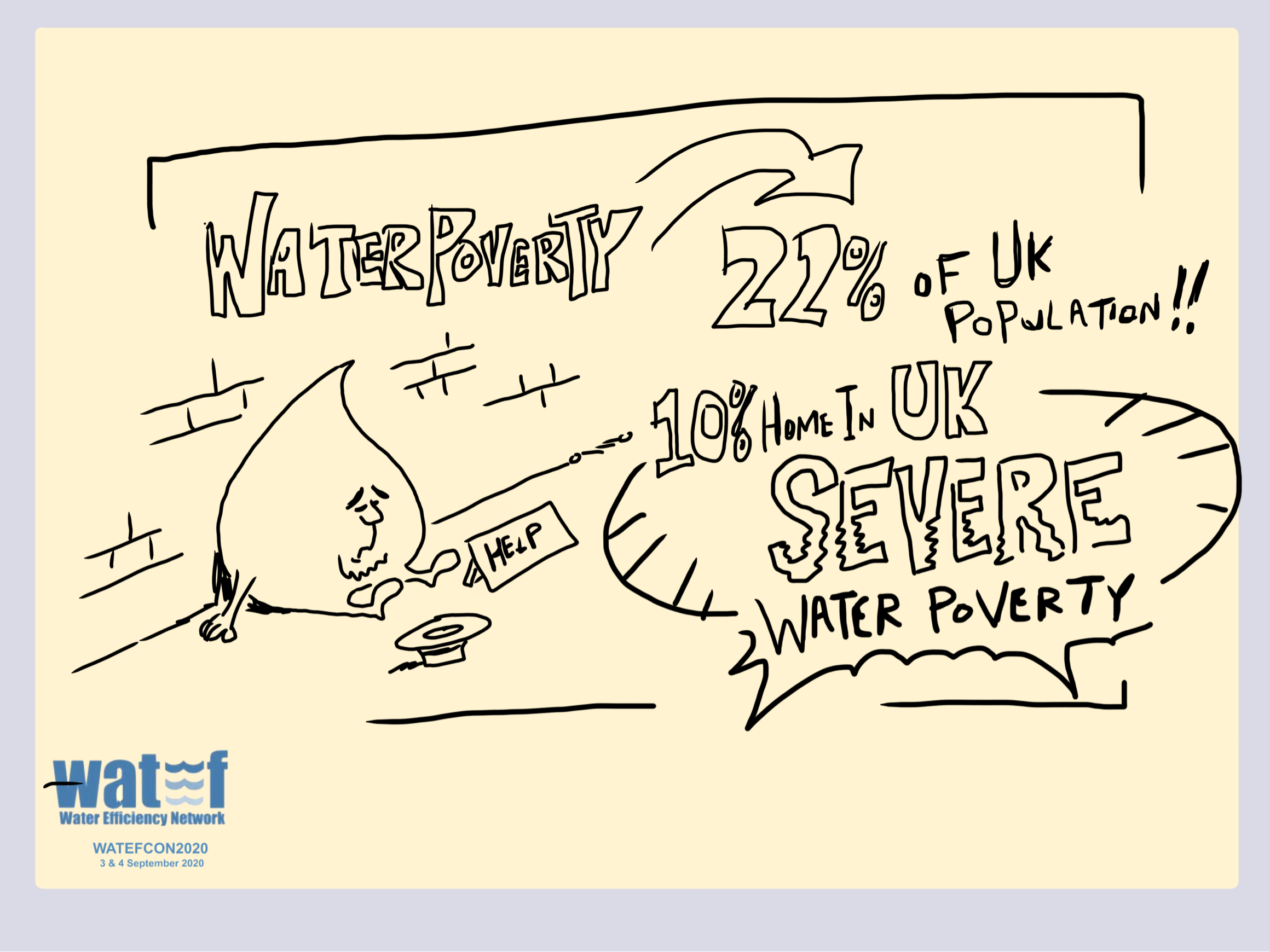 |
Water Poverty and the Social Contract
Jess Cook, National Energy Action Iain McGuffog, Bristol Water In this keynote session Jess Cook from NEA and Iain McGuffog from Bristol Water will discuss water poverty as an issue connected with water labelling, water metering, water efficiency and the hydro-social contract in general. They will explore how reducing water poverty is contingent on integrated perspectives, programmes and policies across the water sector and beyond. The session aims to bring a range of perspectives from inside and outside the water sector, including consumer organisations, organisations working with customers with affordability issues, and the energy sector. |
| 10:15 | Virtual Coffee Break |
|
| 10:30 | Parallel Sessions: | Room 1 - Community responses & capacity building for environmental change. |
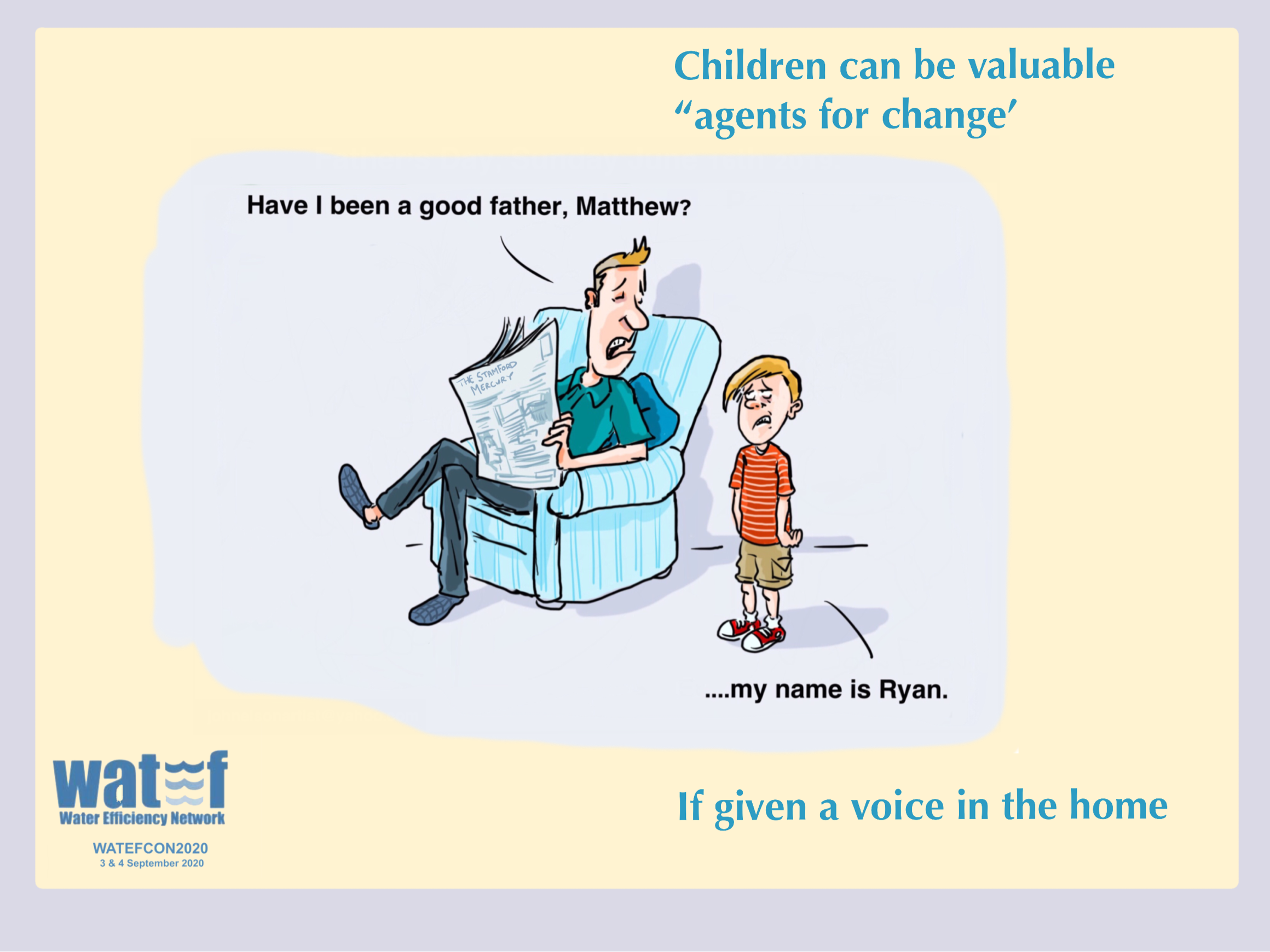 |
Allotments in the Future | |
| Promoting water efficiency and hydrocitizenship in children’s learning for resilience about drought risk in a temperate maritime country | ||
| Evaluation of a socio-environmental approach for disaster risk management | ||
| Nature connectedness, human behaviours and blue infrastructure: the water effect to people in historical and contemporary masterplanning. | ||
| Room 2 - Innovation & integration for resilience in resource, product & policy practice |
||
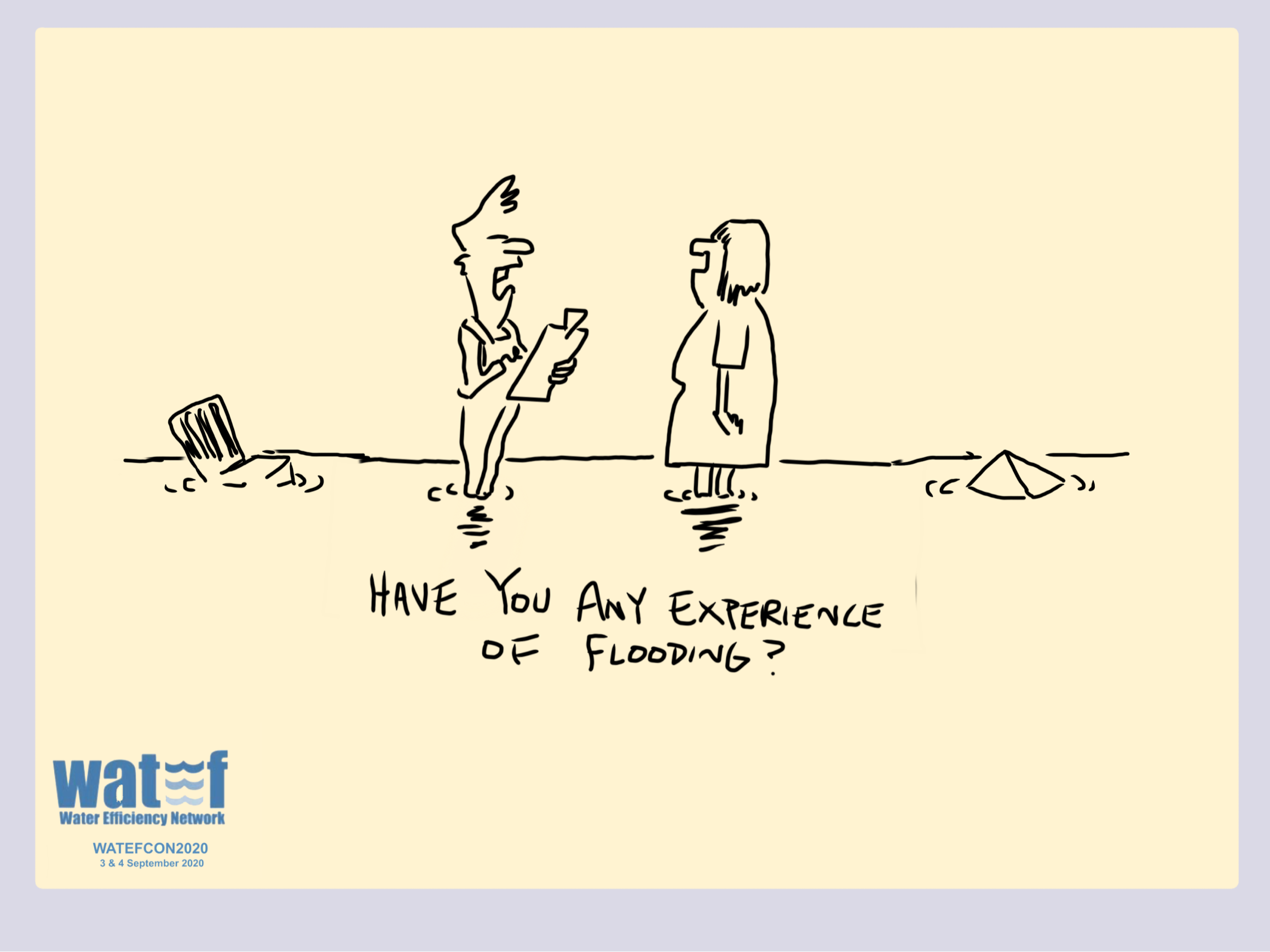 |
Attacking the right-hand tail: why using data can help drive cost-effective water efficiency in households | |
| Exploring Smart Rainwater Management Systems in a Small Island Economy | ||
| Portablecrac. A novel portable technology for the regeneration of granular activated carbon | ||
|
Air temperature influence on hot and cold water consumption in dwellings |
||
| 11:15 | Special session: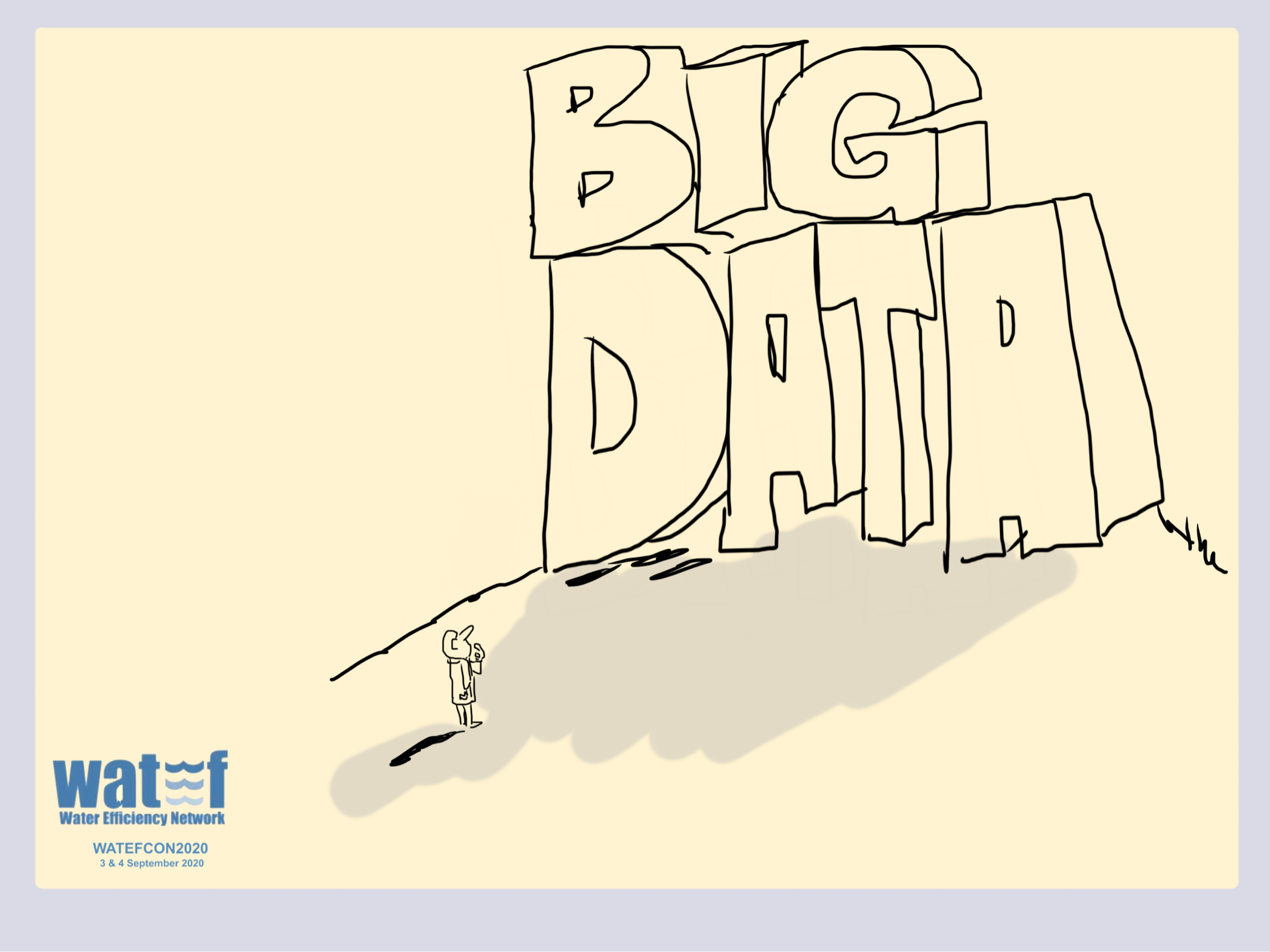 |
Digital Water Futures Dialogue Claire Hoolohan, University of Manchester With Sarah Ward, Rainshare Lead author on a recently submitted, state-of-the-art journal paper on re-socialising digital water transformations, Claire will guide us in an interactive "interview" style conversation exploring a range of perspectives on this emerging and challenging area, which requires us all to reflect on the nature of our digital interactions. |
| 11:45 | Plenary | Roundup of key learnings from the day and summary from our conference illustrator John Elson Conference chairs Sarah Ward and Chad Staddon |
| 12:30 | End of Day 1 |
Day 2: Friday 4 September .png)
| 08:45 | Registration | |
| 09:00 | Welcome | |
| 09:15 | Keynote conversation 2: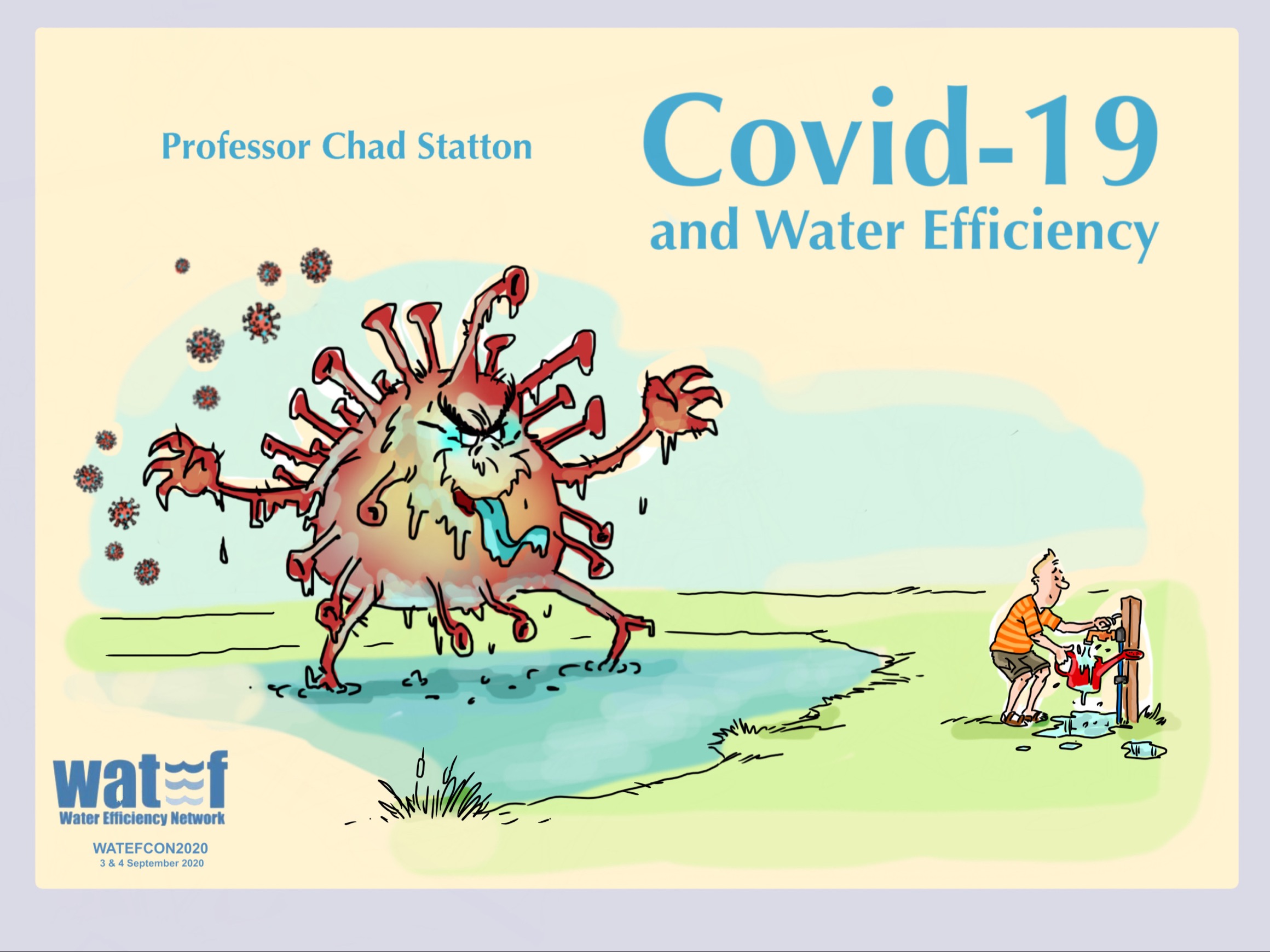 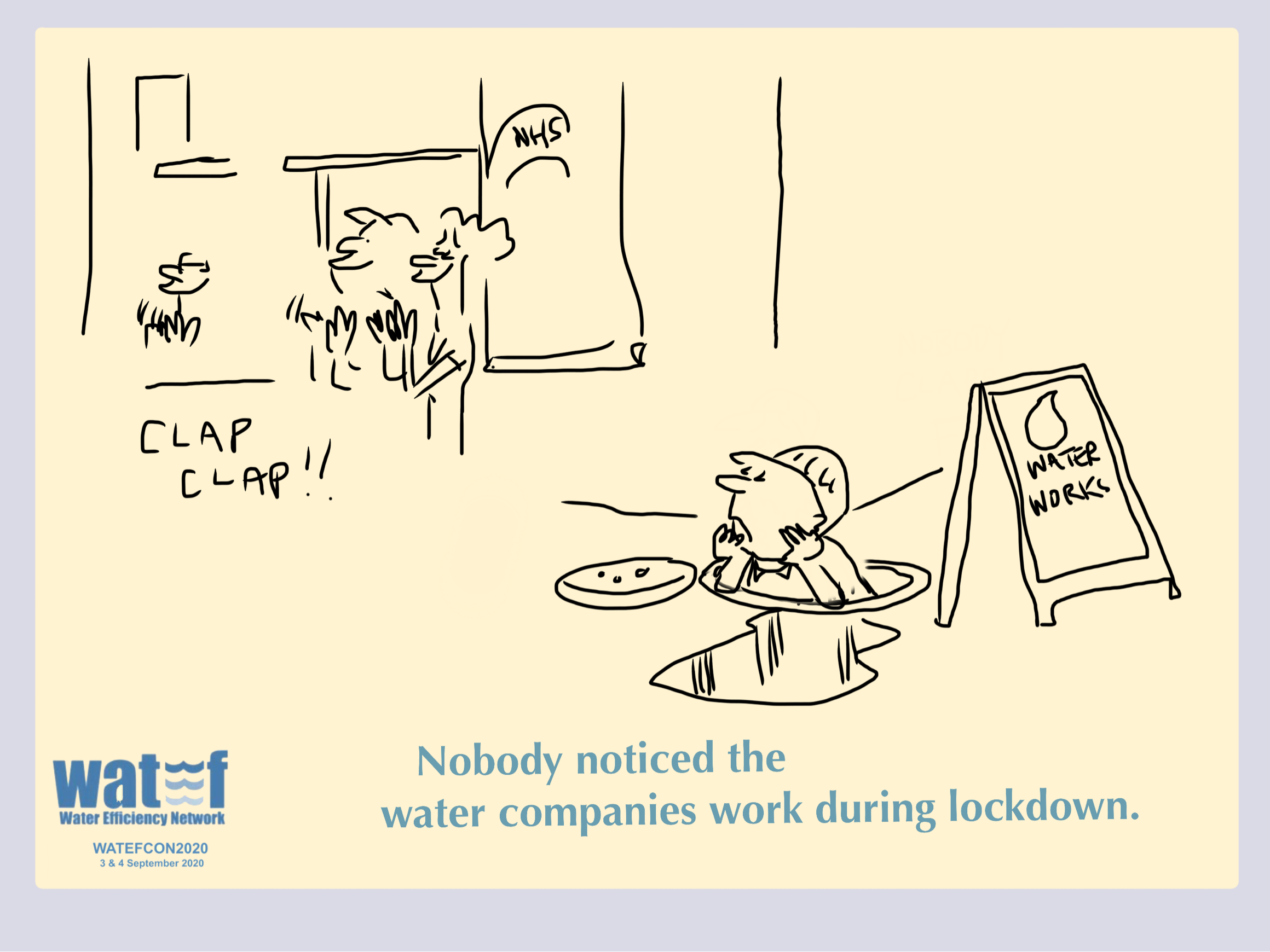 |
COVID-19 and Water Efficiency
Chad Staddon (University of the West of England, Bristol) Patric Bulmer (Bristol Water) The Covid19 global pandemic has highlighted the critical importance of clean, safe and secure water services for everyone, everywhere, around the world. From a global perspective, research led by Staddon and colleagues has shown that around 25% of the global population lacks safe water services to support Covid19 mitigations such as hand hygiene. This reality, much discussed at last week’s Stockholm World Water Week (at home on-line version!), has given renewed impetus to efforts to achieve Sustainable Development Goal 6. In the UK, where we have long enjoyed universal water services, Covid19 has had other, differently profound impacts that are only just coming to light. In this “Keynote Conversation†Chad and Patric focus particularly on four issues relevant to understanding how the water efficiency world has been changed by Covid19: short-term and long-term rebalancing of demand away from non-domestic and towards domestic consumers, the possible establishment of new consumption baselines (does the long-held domestic PCC of 140-160 lppd still hold?), with the implication that intraregional supply arrangements may need to be revised, and the “staycation†effect that has been particularly marked in the southwest. We will talk about how all of this is changing the way we need to think about water efficiency. |
| 09:45 | Parallel Sessions: | Room 1 – Knowledge, engagement & participation for social change |
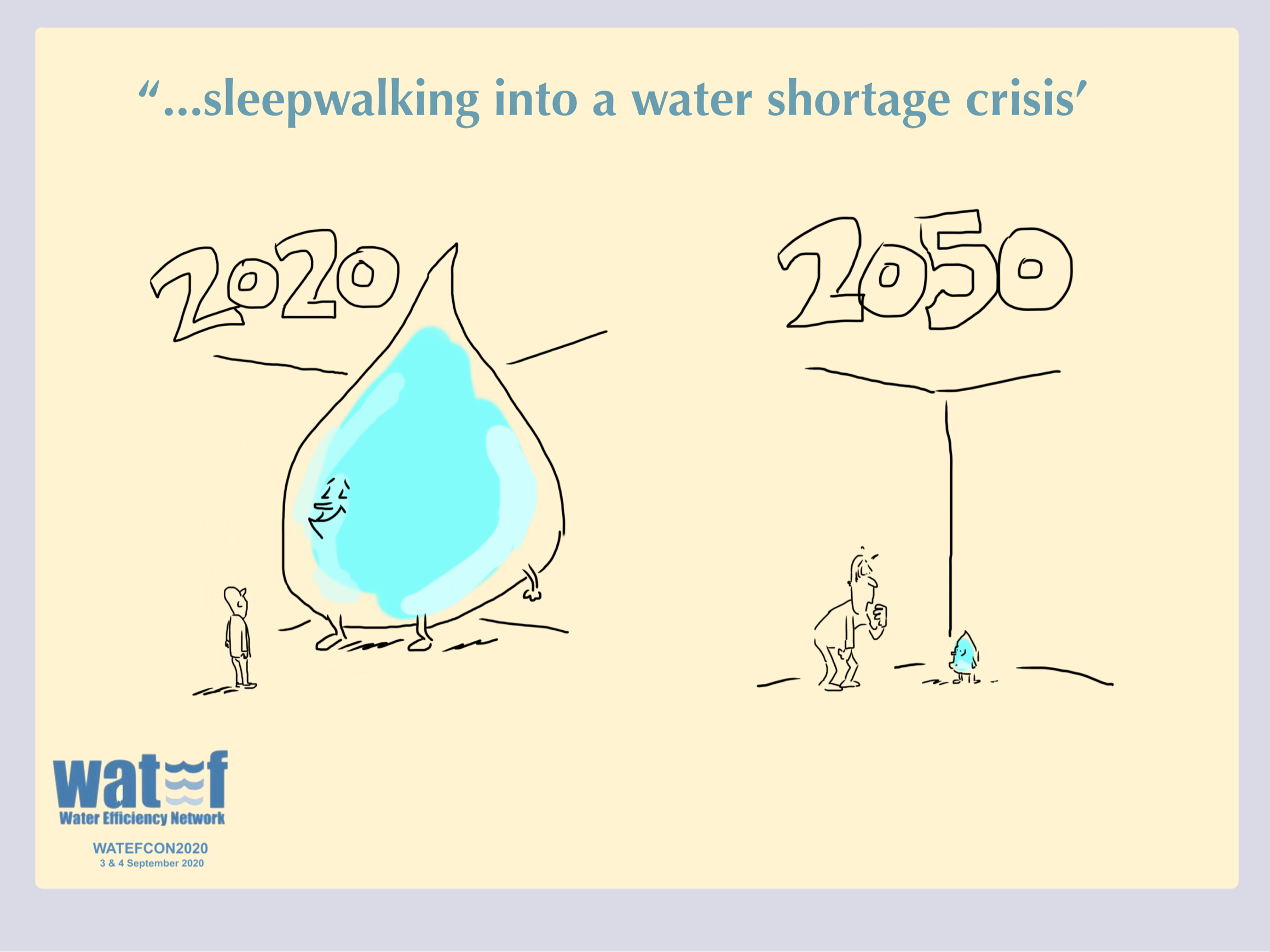 |
Initiating a public conversation about community water resilience and climate adaptation | |
| Sponge 2020: Using nature-based solutions to reduce surface water flooding and deliver multiple benefits | ||
| The Benefits of Socio-legal Approaches to Water Research: “What do you think?†| ||
| Rain gauges to rain gardens: exploring the role of urban drainage engineers with school children in Taunton | ||
| Household or non-household, where should our water efficiency focus be? | ||
| Room 2 - Resilience, policy & governance in urban & built environments |
||
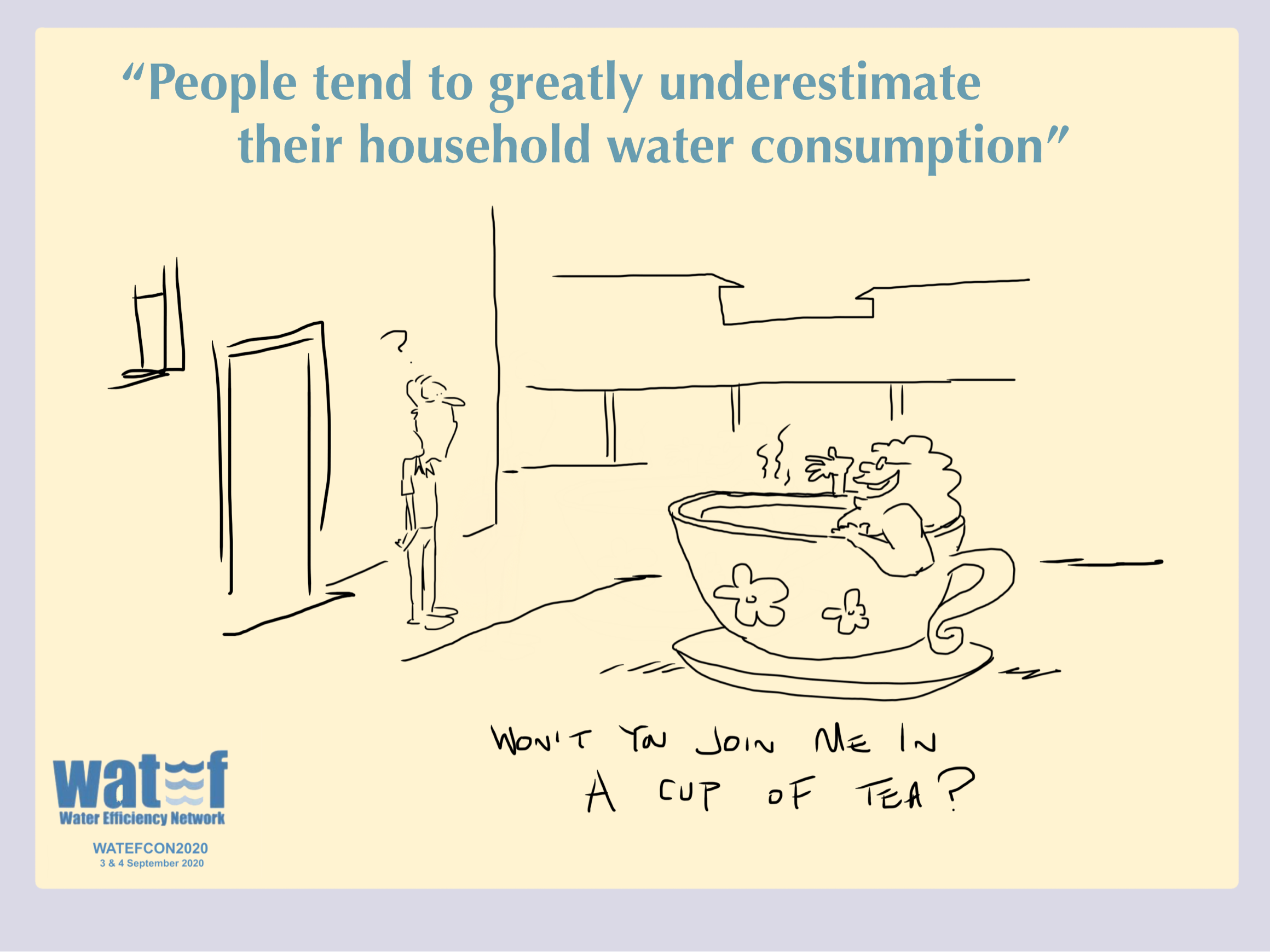 |
Accelerating the uptake of micro hydropower in water networks: understanding and overcoming barriers | |
| Assessment of the Existing Energy Recovery Potential in Drinking and Wastewater Networks in Ireland, Scotland, Northern Ireland and Wales, using Micro-hydropower | ||
| Comparison of Seasonal Variation in Rainy and Dry Per Capita Water Consumption In Freetown Sierra Leone | ||
| Water Use in University Restaurants: A Case Study in Goiânia | ||
| Campus study of the impact of ultra-low flush toilets on sewerage networks and water usage | ||
| 10:45 | Virtual Coffee Break | |
| 11:00 | Special Session: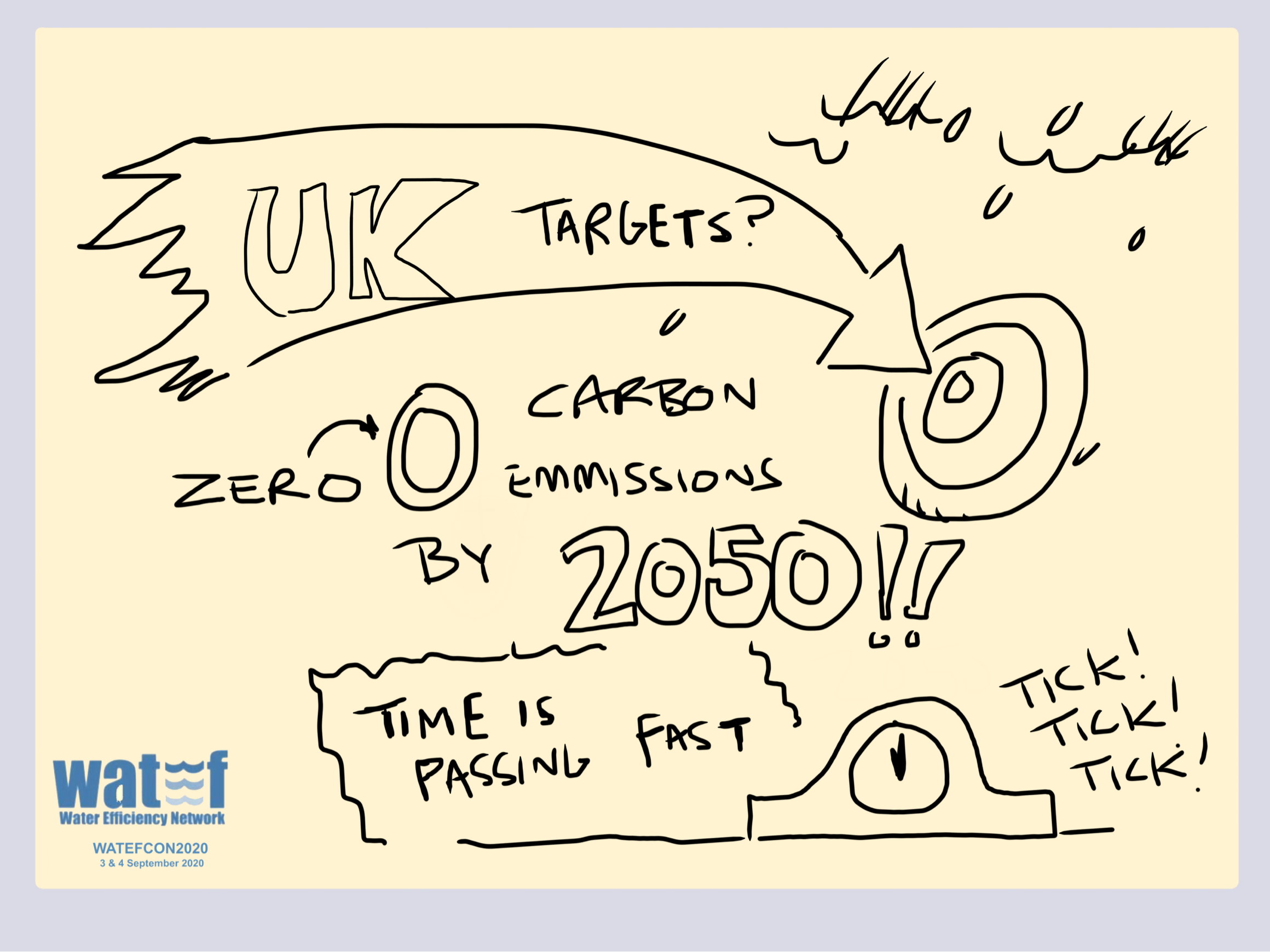 |
Resilience and Integrated water management: A call to action Lutz Johnen (Aquality), Lydia Makin (Waterwise), Peter Henley (WRC), Mike Farnsworth (Stormsaver) The subject of water resilient cities has become ever more important after worldwide drought and especially near miss of the day zero in Cape Town. But resilience regarding flooding aspects is equally important in the UK. Therefore, integrated water management is a key component combining water reuse technologies with Sustainable Urban Drainage methods (SUDs). Water reuse covers technologies such as rainwater harvesting and greywater recycling. These can play an important role in SUDs in order to reduce the volume of water in combined sewer systems that are already not able to cope with larger rainfall events in many cities. This thought provoking, interactive session will explore the different contexts in the UK. We will ask why isn’t more happening to improve water reuse in the UK, and what could a creative solution look like? Four panellists will give their views in lightning style presentations, followed by a live discussion with members of the audience. The aim of this session is to create a clear call to action for policy makers. |
| 12:00 | Plenary | Roundup of key learnings from the day and summary from our conference illustrator John Elson. Conference chairs Sarah Ward and Chad Staddon |
| 12:25 | Live launch over lunch! 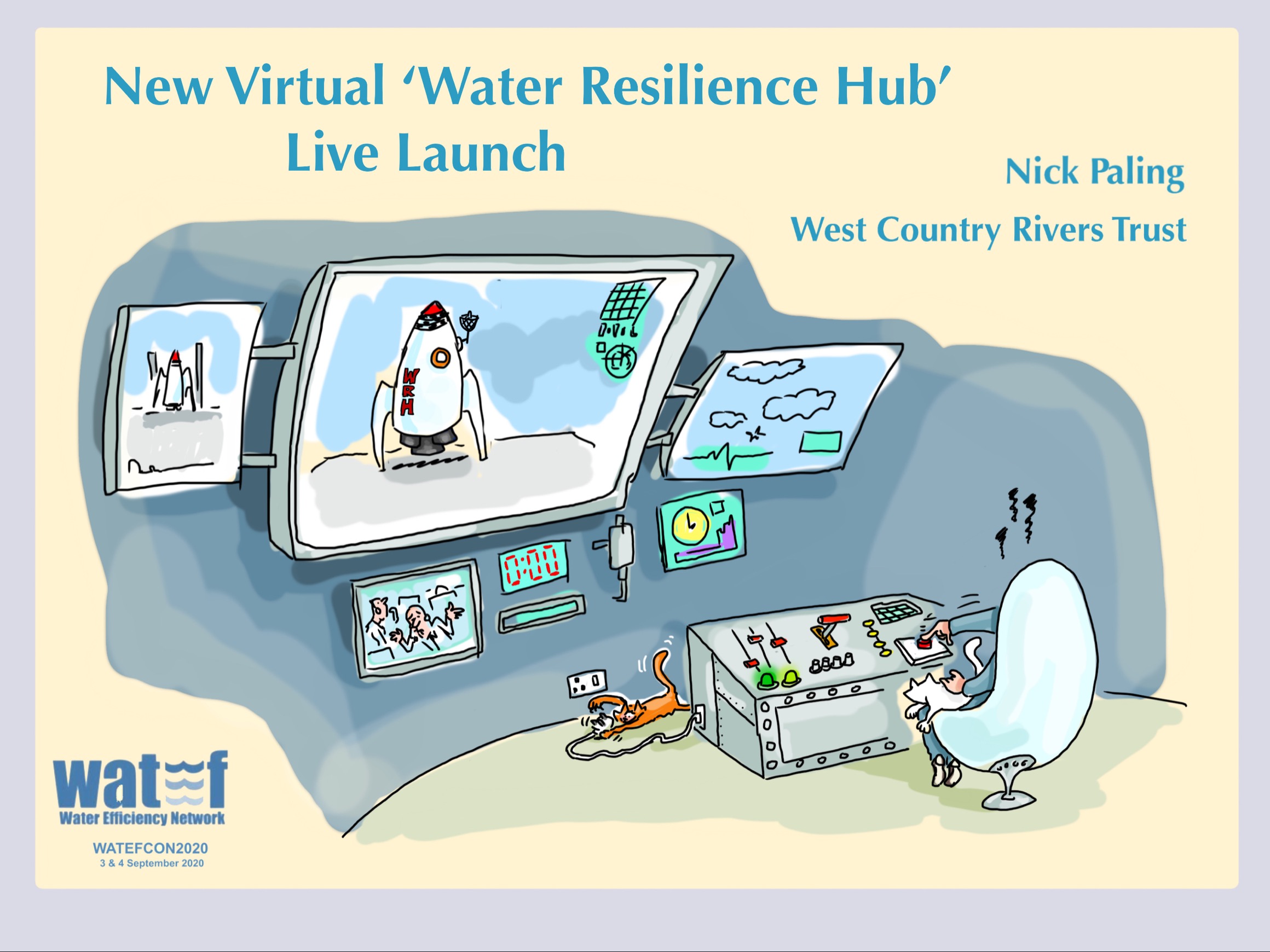 |
New virtual ‘Water Resilience Hub’ live launch Nick Paling, Westcountry Rivers Trust The 'physical' Community Water Resilience Hub and Library was launched at the Water Resilience Summit (Totnes, Sept 2019). Due to COVID-19, a virtual online version has been developed to be a welcoming space where people can find information, strike up conversations, meet other members of an online community and receive support relating to climate change pressures particularly in relation to water resources issues. |
| 12:45 | Close | Formal close of event Conference chairs Sarah Ward and Chad Staddon and Watef Network Lead Kemi Adeyeye |
| 12:50 | Lunchtime networking | Optional: people can remain in rooms and chat to anyone they’ve been engaging with (e.g. via chat or pre-arranged). |
| 13:00 | Ends | Networking rooms automatically close at 13:00 |



